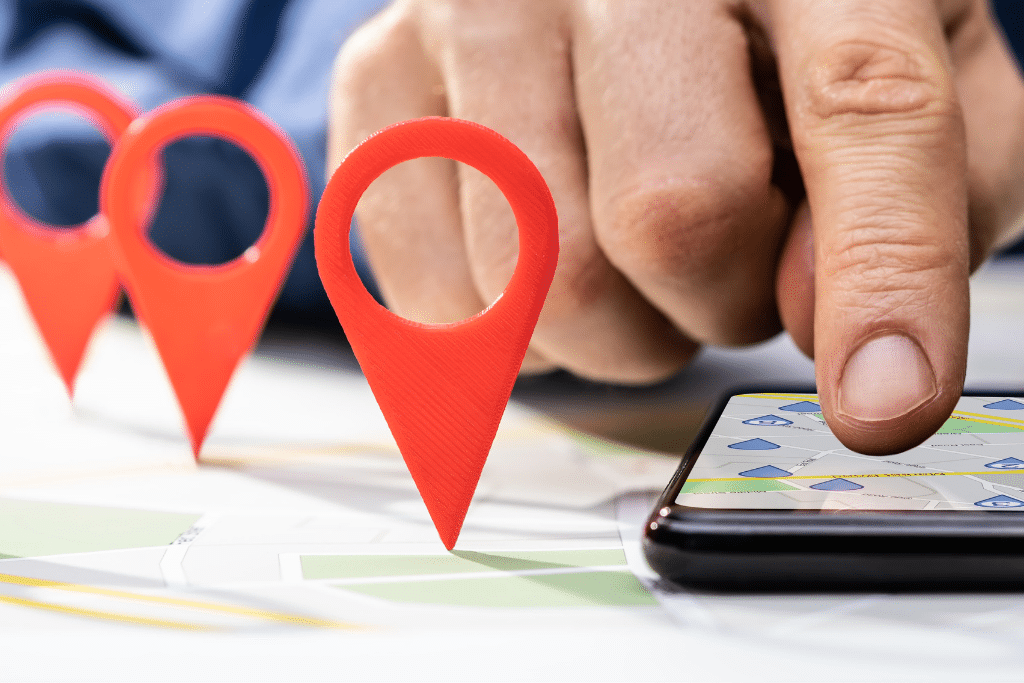
SEO (search engine optimization) is undoubtedly one of the most effective digital marketing channels out there. It is the process of optimizing the website for users as well as search engines to reach the targeted audience.
The SEO strategy can differ based on the type of business. For example, it could be a local business, a business without a physical location, or an eCommerce business.
If you are a small business owner with a physical location, all focus goes on the particular area. Your target audience becomes all the people who search for your product/service in your geographic location.
That’s how local SEO is different from general SEO. Thus, the strategy also differs.
If you want to know the importance of local SEO for your business, take a look at these statistics:
- 78% use the internet to find information about local businesses in their area more than once a week.
- 46% of Google searches are local
- 97% of people learn more about a local company online than anywhere else
- 90% of brands found that online reviews impacted local rankings
One of the reasons why you should work on local SEO of your small business is because your competitors are already doing it. If you don’t, your competitors will generate more leads and sales.

12 Local SEO Tips For Small Businesses
As we have seen, local SEO is quite different from general SEO and eCommerce SEO, so the strategy you need to formulate, and the tasks you need to work on would also be quite different.
Here are some effective local marketing strategies tried and tested to be boosting local online presence:

1. Claim and optimize your Google My Business listings
The first and most important step in local SEO is claiming and optimizing the Google My Business listing of your business. If you don’t do that, you will be missing out on so many potential customers. Properly optimize your GMB (Google My Business) listing by working on the profile’s title & description, using high-quality images, and adding other business information.
Claiming and optimizing GMB listing is very important because whenever a user makes a local search query, Google shows a local pack with three results. So, proper optimization is a must if you want to appear on the local pack.
2. Research local keywords
Keyword research is one of the most essential parts of any SEO strategy. Identify and use localized keywords that reflect what locals are searching for. Tools like Google Keyword Planner or SEMrush can help uncover these terms. Integrate these keywords naturally into your website content, meta tags, and descriptions.
3. Create local content
Creating content with a local focus can help search engines understand where you are based. As a result, this can increase your chances of ranking high for local search queries. You need to craft content that resonates with your local audience. Cover local events, news, or topics specific to your area. This could include blog posts, guides, or videos addressing local interests or concerns.
4. Add location pages to your website
Adding location pages to your website can help you rank for local search queries. So, create dedicated pages for each location you serve. Include specific location information, such as address, contact details, hours of operation, and unique content tailored to local customers. This helps search engines understand your geographical relevance.
5. Make sure your NAP is consistent
NAP stands for name, address, and phone number. To get the best out of your local SEO strategy, ensuring NAP consistency is so important. Maintain consistency across your website, social media profiles, directories, and listings. Inconsistencies can confuse search engines and potential customers, impacting your local search rankings.
6. Get reviews
Reviews on platforms like GMB (Google My Business), Yelp, etc. are not just ratings or comments. They are social proof that shows your potential customers the quality of the products or services you provide. You should encourage your customers to review because it not only influences your potential customers’ buying decisions but also impacts search engine rankings.
7. Build links on local sites
Link building is also a crucial part of SEO. It’s not about the number of links you build, it’s more about the number of quality links you build. To boost your local online presence, you should try getting backlinks from local sites. For that, you can collaborate with local businesses, sponsor local events, or contribute to community initiatives. Obtaining backlinks from reputable local websites can boost your authority in local search results.
8. Ensure mobile accessibility
You would be surprised to know that about 82% of mobile searches are local. With a massive number of local search queries on mobile devices, it’s essential to optimize your website for mobile devices. If your website is not mobile responsive, takes too long to load, or users face any other difficulty in terms of mobile accessibility, you will miss out on a huge number of potential customers. So use responsive web design, to ensure fast loading times, and easy navigation on smartphones and tablets. Mobile-friendly sites rank higher in local search results.
9. Include Structured Data
Implement structured data markup (Schema.org) to provide search engines with specific information about your business, such as operating hours, reviews, and addresses. This can enhance your visibility in local search results and featured snippets.
10. Social media
Being active on various social media channels can also be a good way to gain visibility in front of your target audience. Maintain an active presence on social media platforms frequented by your local audience. Share engaging content, interact with the community, and encourage user-generated content to foster engagement.
11. Check and fix technical errors
Technical issues in the website can cause problems like crawling errors, indexing issues, etc. So, regularly audit your website to resolve technical SEO issues like broken links, slow loading times, or crawl errors. Addressing these technicalities enhances user experience and helps search engines index your site properly.
12. Use local schema
Implement local schema markup to provide search engines with specific geographic information about your business. This markup can increase your chances of appearing in local search results and rich snippets.
Final Thoughts
Implementing the above local SEO strategies will set you apart from most of your competitors. These tips will significantly improve your small business’s local SEO performance, making it easier for local customers to find and engage with your business.
As a small business owner, you may not have a dedicated marketing department, which is fine. Having a dedicated marketing department can be expensive. That’s why it’s a good idea to hire an agency for your local SEO needs.
If you own a small local business and are looking for local SEO service to boost your organic traffic, get in touch with NxtGen. We can help you with all your local SEO and digital marketing needs.










